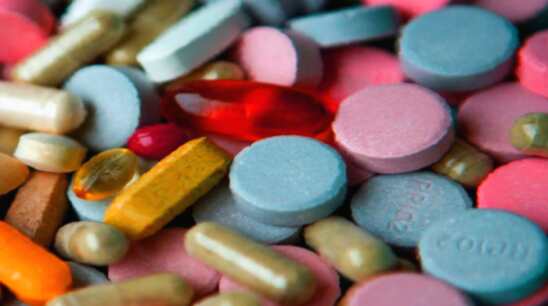Kg to Lbs Conversion Chart: Kilograms to Pounds Table. 1kg to 150kg.
Kilograms Pounds
0.5 kg 1.1 lbs
1 kg 2.2 lbs
1.5 kg 3.3 lbs
2 kg 4.4 lbs
2.5 kg 5.5 lbs
3 kg 6.6 lbs
4 kg 8.8 lbs
5 kg 11 lbs
6 kg 13.2 lbs
7 kg 15.4 lbs
8 kg 17.6 lbs
9 kg 19.8 lbs
10 kg 22 lbs
11 kg 24.3 lbs
12 kg 26.5 lbs
13 kg 28.7 lbs
14 kg 30.9 lbs
15 kg 33.1 lbs
16 kg 35.3 lbs
17 kg 37.5 lbs
18 kg 39.7 lbs
19 kg 41.9 lbs
20 kg 44.1 lbs
21 kg 46.3 lbs
22 kg 48.5 lbs
23 kg 50.7 lbs
24 kg 52.9 lbs
25 kg 55.1 lbs
26 kg 57.3 lbs
27 kg 59.5 lbs
28 kg 61.7 lbs
29 kg 63.9 lbs
30 kg 66.1 lbs
31 kg 68.3 lbs
32 kg 70.5 lbs
33 kg 72.8 lbs
34 kg 75 lbs
35 kg 77.2 lbs
36 kg 79.4 lbs
37 kg 81.6 lbs
38 kg 83.8 lbs
39 kg 86 lbs
40 kg 88.2 lbs
41 kg 90.4 lbs
42 kg 92.6 lbs
43 kg 94.8 lbs
44 kg 97 lbs
45 kg 99.2 lbs
46 kg 101.4 lbs
47 kg 103.6 lbs
48 kg 105.8 lbs
49 kg 108 lbs
50 kg 110.2 lbs
51 kg 112.4 lbs
52 kg 114.6 lbs
53 kg 116.8 lbs
54 kg 119 lbs
55 kg 121.3 lbs
56 kg 123.5 lbs
57 kg 125.7 lbs
58 kg 127.9 lbs
59 kg 130.1 lbs
60 kg 132.3 lbs
61 kg 134.5 lbs
62 kg 136.7 lbs
63 kg 138.9 lbs
64 kg 141.1 lbs
65 kg 143.3 lbs
66 kg 145.5 lbs
67 kg 147.7 lbs
68 kg 149.9 lbs
69 kg 152.1 lbs
70 kg 154.3 lbs
71 kg 156.5 lbs
72 kg 158.7 lbs
73 kg 160.9 lbs
74 kg 163.1 lbs
75 kg 165.3 lbs
76 kg 167.6 lbs
77 kg 169.8 lbs
78 kg 172 lbs
79 kg 174.2 lbs
80 kg 176.4 lbs
81 kg 178.6 lbs
82 kg 180.8 lbs
83 kg 183 lbs
84 kg 185.2 lbs
85 kg 187.4 lbs
86 kg 189.6 lbs
87 kg 191.8 lbs
88 kg 194 lbs
89 kg 196.2 lbs
90 kg 198.4 lbs
91 kg 200.6 lbs
92 kg 202.8 lbs
93 kg 205 lbs
94 kg 207.2 lbs
95 kg 209.4 lbs
96 kg 211.6 lbs
97 kg 213.8 lbs
98 kg 216.1 lbs
99 kg 218.3 lbs
100 kg 220.5 lbs
101 kg 222.7 lbs
102 kg 224.9 lbs
103 kg 227.1 lbs
104 kg 229.3 lbs
105 kg 231.5 lbs
106 kg 233.7 lbs
107 kg 235.9 lbs
108 kg 238.1 lbs
109 kg 240.3 lbs
110 kg 242.5 lbs
111 kg 244.7 lbs
112 kg 246.9 lbs
113 kg 249.1 lbs
114 kg 251.3 lbs
115 kg 253.5 lbs
116 kg 255.7 lbs
117 kg 257.9 lbs
118 kg 260.1 lbs
119 kg 262.4 lbs
120 kg 264.6 lbs
121 kg 266.8 lbs
122 kg 269 lbs
123 kg 271.2 lbs
124 kg 273.4 lbs
125 kg 275.6 lbs
126 kg 277.8 lbs
127 kg 280 lbs
128 kg 282.2 lbs
129 kg 284.4 lbs
130 kg 286.6 lbs
131 kg 288.8 lbs
132 kg 291 lbs
133 kg 293.2 lbs
134 kg 295.4 lbs
135 kg 297.6 lbs
136 kg 299.8 lbs
137 kg 302 lbs
138 kg 304.2 lbs
139 kg 306.4 lbs
140 kg 308.6 lbs
141 kg 310.9 lbs
142 kg 313.1 lbs
143 kg 315.3 lbs
144 kg 317.5 lbs
145 kg 319.7 lbs
146 kg 321.9 lbs
147 kg 324.1 lbs
148 kg 326.3 lbs
149 kg 328.5 lbs
150 kg 330.7 lbsYou frequently need to convert kilograms to pounds for fitness tracking, cooking, international shipping, or travel. This kg to lbs conversion chart provides accurate conversions from 1 kg to 150 kg so you can find the equivalent weight in pounds instantly, no calculator required.
Quick conversion formula & notes
- Exact relationship: 1 pound (lb) = 0.45359237 kilograms (kg) (defined exactly).
Therefore 1 kilogram = 2.2046226218487757 lbs. - The chart above uses the factor 1 kg ≈ 2.2046226218 lbs and rounds results to one decimal place for readability.
As a curiosity, this is the code used to produce the list:
<?php
for ($x = 1; $x < 151; $x++) {
print str_pad($x . " kg", 13, " ", STR_PAD_RIGHT) .
round($x * 2.2046226218487757, 1) .
" lbs\n\n";
}